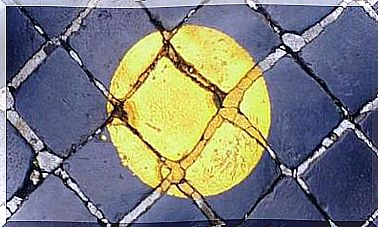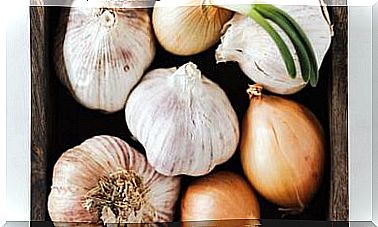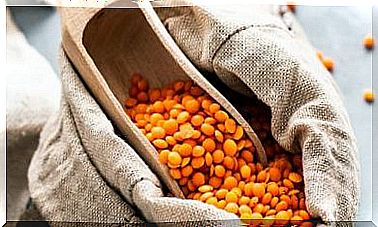New Year’s Resolution: A More Plant-based Diet
If one of your resolutions for 2018 is to switch to a vegan diet and lead a healthier life, you can’t miss this post.

We are already in the last days of the year, dates in which we look back and value the last 12 months. The good moments, the not so good, what we have achieved and what has remained in the pipeline. It is now when, out of habit, we draw paper and pen and write a new list of resolutions to fulfill for the next year that is about to begin.
Of course, one of the classics of all time is “getting in shape”, but … and how? The first thing that comes to mind is going to the gym to sweat and go on a diet to lose weight. From my point of view… ERROR!
Banish the word “diet” from your vocabulary on your New Year’s resolutions.
If we want to be fit to feel good, we must do what is good for us, what we feel like and what gratifies us, above all, on an emotional level. If we want to move the body, let’s look for an activity that motivates us, a hobby that fulfills us, some yoga classes, some dance classes, climbing, going for a run, practicing exercise in company, any modality and in some way that we like, that feed our heart, instead of taking it as an obligation. In this way we are sure that we do not get tired and we will follow the purpose to the letter.
As far as diet is concerned, get out. Out with the word “diet” if we use it in a negative connotation. Out with the idea of starvation. Let’s look for a lifestyle that fits with us, that helps us to be healthy, feel agile, light and energetic.
To do this, my proposal is to veganize your diet a little more, add more plant-based foods to your dishes. As with physical activity, in order not to abandon the purpose we must learn more about new foods, have ideas of how to cook these new dishes in an attractive way, but above all, be convinced.
And there will be no greater conviction than knowing some of the reasons to bet on this option. So in this article this is my goal, to discover some of the reasons that also make me follow this lifestyle.
Why switch to a vegetarian or vegan diet?
People who follow a 100% plant-based diet have a lower risk of degenerative diseases and others such as cancer, heart disease, diabetes, cataracts, obesity, osteoporosis, hypertension, liver disease, and kidney and gallbladder stones.
What is this about? I explain it to you.
Consumption of less saturated fat and total fat
A high-fat diet is linked to an increased risk of diabetes, obesity, and possible cancers. On average, for someone who follows a standard diet, fat makes up 34-38% of their diet. The ovo-lacto-vegetarians, between 30-34%, and the vegans less than 30%.
Cholesterol is found only in foods of animal origin
Dietary cholesterol, that is, that consumed through foods of animal origin, is related to an increase in heart disease and possible cancers. In a standard diet they consume about 350mg of cholesterol, a lacto-ovo-vegetarian between 150-300mg and vegans do not consume foods that contain cholesterol. A plant-based diet does not contain cholesterol, since that necessary for the maintenance of health is produced in the liver.
I consume more fiber
Dietary fiber reduces the risk of colon cancer, cardiovascular disease and helps control blood glucose levels (prevent diabetes), among others. On average, about 15g of fiber are consumed daily while vegans can increase this consumption up to 80%.
Consumption of more natural antioxidants
Vitamins, minerals, and other natural phytoelements and enzymes have antioxidant properties that can help reduce the risk of cancer, heart disease, arthritis, or cataracts. The best known dietary antioxidants are vitamin C, vitamin E, and beta-carotene.
People who follow a totally plant-based diet consume between 50-100% more vitamins C and E, in addition to a greater amount of phytochemicals that strengthen the immune system, and fight the damage of free radicals, thus reducing their speed of aging.
Adequate protein intake
Vegans consume less protein, and if their diet is varied, they meet the necessary daily recommendations. Omnivores usually consume a diet that contains between 14-20% protein, ovo-lacto-vegetarians between 12-15% and vegans between 10-12%. An excess of protein, especially of animal origin, may be related to an increased risk of osteoporosis, kidney stones, and liver disease.
Above all, the change must be with awareness and without any type of suffering, always from love towards oneself. It is not necessary to go from 100 to 0 overnight but you do need to make small changes.
Start by discarding the consumption of red meat, followed by white meat and fish, all little by little and you will see how your appetite also changes. It is not about thinking that we limit our diet but that we are going to create more abundance by discovering new flavors with new plant foods and that we are going to fill our dishes even more, but from now on with more life and color.
Happy Holidays and a healthy New Year!









